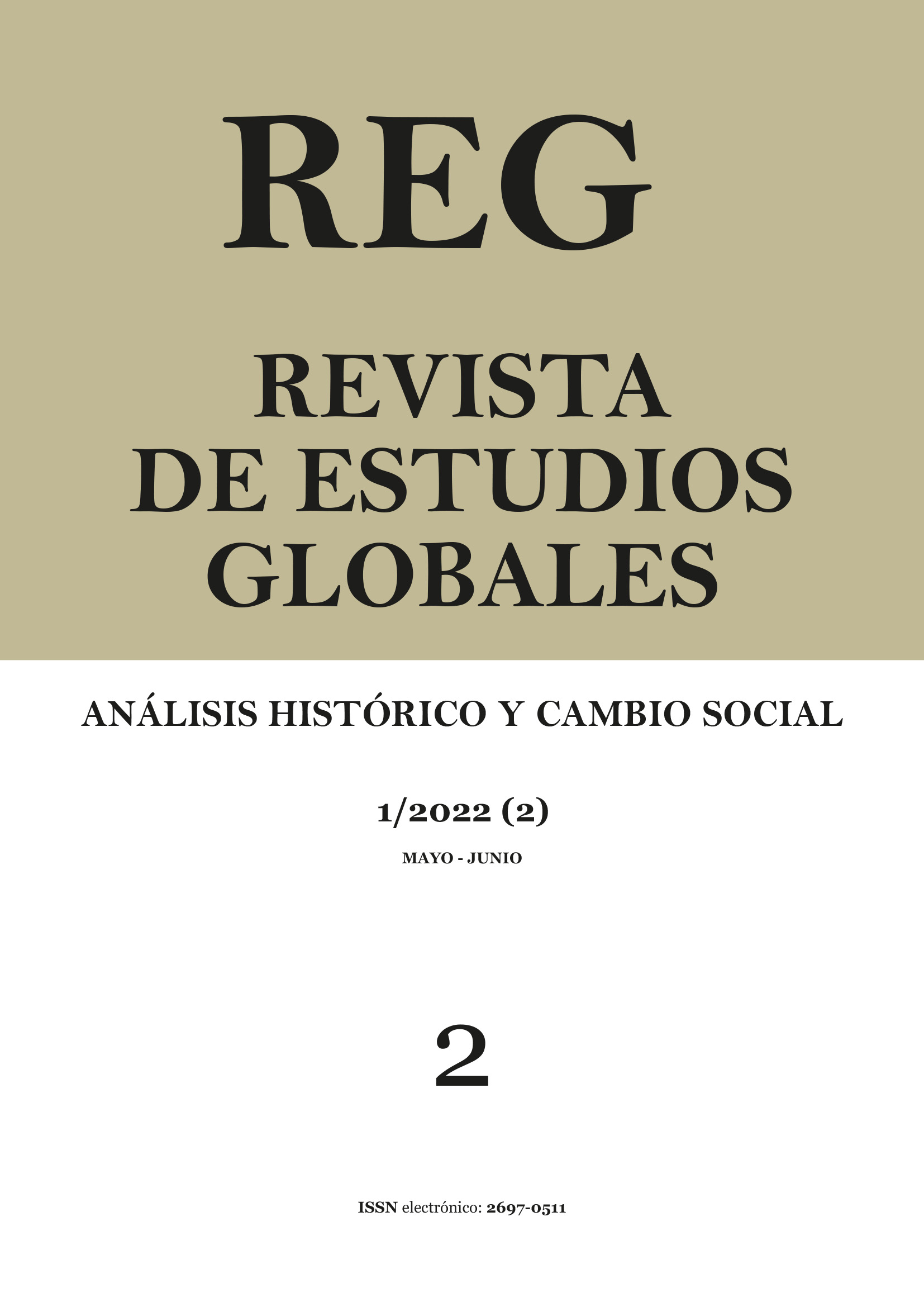20 Puntos clave para entender la mortífera decadencia del capitalismo
Abstract
Since 2008, at the International Crisis Observatory, we have been working on the recurring structural crises of capitalism, their profound reasons, in order to be able to specify and explain its current systemic quagmire, which for us is nothing more than a symptom of its degenerative phase (“senile capitalism” Amin called it), tenden-tially terminal, without “terminal” necessarily meaning “imminent”. To locate ourselves in this trend, it is necessary to show that the conditions of degeneration are becoming more acute and that the development of the productive forces increasingly gives way to destructive forces, with the consequent decline of the whole of capitalist civilization. Dilution of value, social and environmental destruction, collapse of societies... In this article I intend to expose in the clearest and simplest way possible some of the processes that explain all this, as well as the conclusions or implications that are attached to them. I will do it in 20 points, for whose greater depth and exposition of data I have to refer at least to some of my previous works on the matter (Piqueras, 2014, 2017a, 2017b, 2018 and 2022, with its corresponding bibliography – and also that of the rest of the team-). I try to synthesize, in the most didactic way possible, some of the most relevant processes and factors for the analysis of the current phase of capitalism.
Downloads
Metrics
-
Abstract1237
-
pdf (Español (España))966
References
Bank of America Merrill Lynch (2015), «Third Quarter 2015 Report». Disponible en http://www.banofamerica.com/
Brenner, Robert (2009), La economía de la turbulencia global, Madrid: Akal.
City GPS. Global Perspectives & Solutions (2016), «Technology at Work v2.0. The Future Is Not What It Used to Be». Disponible en http://www.oxfordmartin.ox.ac.uk/downloads/reports/Citi_GPS_Technology_Work_2.pdf
Colectivo Ioé (2012), «El Modelo Vigente Enriquece A Los Más Ricos: 1% Frente A 99%». disponible en https://barometrosocial.es/archivos/474
Colussi, Marcelo (2021), «El futuro que nos espera ¿Hacia un capitalismo verde?», LQSomos. Disponible en https://loquesomos.org/el-futuro-que-nos-espera-hacia-un-capitalismo-verde/
Dierckxsens, Wim y Jarquín, Antonio (Observatorio Internacional de la Crisis) (2012), Crisis y sobrevivencia. Ante guerreros y banqueros, San José: DEI.
Foster, John B., McChesney, Robert W. y Jonna, R. Jamil (2011), «The Global Reserve Army of Labor and the New Imperialism», Monthly Review, 63 (6). Disponible en http://monthlyreview.org/2011/11/01/the-global-reserve-army-of-labor-and-the-new-imperialism/
Hanlon, Gerard (2014), «The entrepenurial function and the capture of value: Using Kirzner to understand contemporary capitalism», Ephemera. Theory and Politics in Organization, 14 (2), pp. 177-195.
Kidron, Michael (2002), «Failing growth and rampant costs: two ghosts in the machine of modern capitalism». Disponible en https://www.marxists.org/archive/kidron/works/2002/xx/ghosts.htm
Kurz, Robert (1995), «The apotheosis of money: the structural limits of capital valorization, casino capitalism and the global financial crisis». Disponible en https://libcom.org/
Kurz, Robert (2009/1995), «La ascensión del dinero a los cielos. Los límites estructurales de la valorización del capital, el capitalismo de casino y la crisis financiera global». Disponible en http://docslide.us/documents/kurz-robert-la-ascension-del-dinero-a-los-cielos.html
Maito, Esteban E. (2013), «La transitoriedad histórica del capital. La tendencia descendente de la tasa de ganancia desde el siglo XIX», Razón y Revolución, 26, pp. 129-159. Disponible en https://marxismocritico.files.wordpress.com/2014/06/maito-esteban-ezequiel-la-transitoriedad-histc-3b3rica-del-capital-razc3b3nyrevolucic3b3nn_26.pdf
Marx, Karl (1980/1894). El Capital. Tomo III, La Habana: Editorial de Ciencias Sociales.
McKinsey Global Institute (2013), «Disruptive Technologies: Advances that Will Transform Life, Business, and the Global Economy». Disponible en https://www.mckinsey.com/business-functions/mckinsey-digital/our-insights/disruptive-technologies
Milanović, Branko (2006), La era de las desigualdades. Dimensiones de la desigualdad internacional y global, Madrid: Sistema.
O’Hara, Phillip Anthony (2004), «A New Transnational Corporate Social Structure of Accumulation for Long-Wave Upswing in the World Economy?», Review of Radical Political Economics,36, pp. 328-335.
OIT (2012), «Informe sobre el trabajo en el mundo». Disponible en https://www.ilo.org/global/research/global-reports/world-of-work/lang--es/index.htm
OIT (2015), «Perspectivas sociales y del empleo en el mundo: El empleo en plena mutación». Disponible en https://www.ilo.org/global/research/global-reports/weso/2015-changing-nature-of-jobs/lang--es/index.htm
Oxfam (2014), «Gobernar para las elites. Secuestro democrático y desigualdad económica». Disponible en https://www.oxfam.org/es/informes/gobernar-para-las-elites
Piketty, Thomas (2013), Le capital au XXIe siècle, Paris: Seuil.
Piqueras, Andrés (2014), La opción reformista. Entre el despotismo y la revolución. Una explicación del capitalismo histórico a través de las luchas de clase, Barcelona: Anthropos.
Piqueras, Andrés (2017a), La tragedia de nuestro tiempo. La destrucción de la sociedad y la naturaleza por el capital. Análisis de la fase actual del capitalismo, Barcelona: Anthropos.
Piqueras, Andrés (2017b), «El capital ficticio especulativo-parasitario se pone al mando del capitalismo. El recrudecimiento de la desigualdad, la explotación, el desempleo, la precariedad, la pobreza, el despotismo y la desposesión», Áreas. Revista Internacional de Ciencias Sociales, 36, pp. 11-23.
Piqueras, Andrés (2018), Las sociedades de las personas sin valor. Cuarta Revolución Industrial, des-substanciación del capital, desvalorización generalizada, Barcelona: El Viejo Topo.
Piqueras, Andrés (2022), De la decadencia de la política en el capitalismo terminal. Un debate crítico con los «neo» y los «post» marxismos. También con los movimientos sociales, Barcelona: El Viejo Topo.
Roberts, Michael (2017), La larga depresión. Cómo ocurrió, porqué ocurrió y qué ocurrirá a continuación, Barcelona: El Viejo Topo. La primera edición es de 2016 publicada por Haymarket Books (Chicago, Illinois).
Van der Linden, Marcel (2008), Workers of the World. Essays Toward a Global Labor History, Leiden y Boston: Brill.

Copyright (c) 2022 Revista de Estudios Globales. Análisis Histórico y Cambio Social

This work is licensed under a Creative Commons Attribution-NonCommercial-NoDerivatives 4.0 International License.









